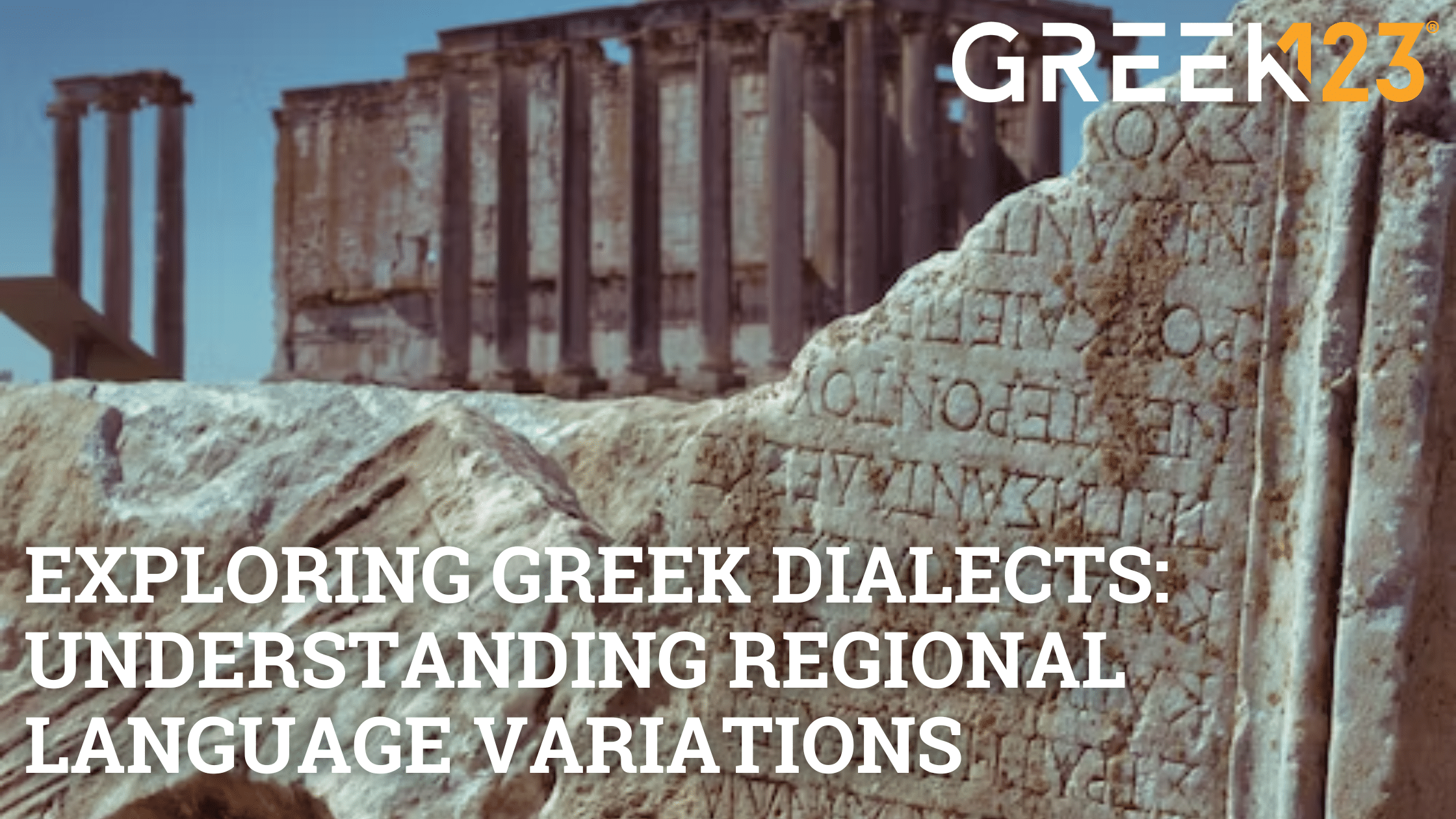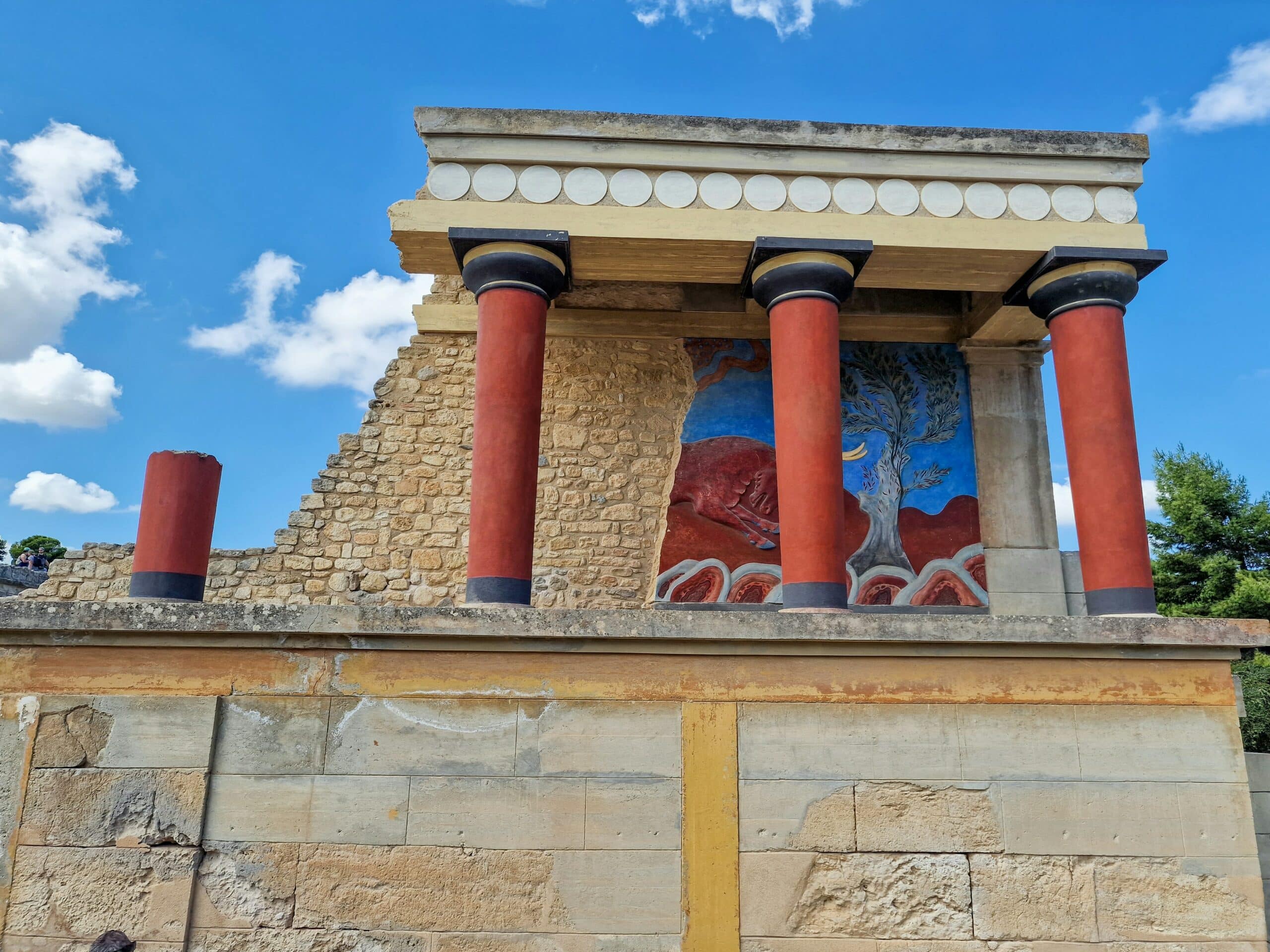
Exploring Greek Dialects
Understanding Regional Language Variations
The rich tapestry of the Greek language extends beyond the borders of a singular linguistic identity. Known for its historical significance and cultural diversity, Greece boasts a fascinating array of dialects that reflect the nation’s regional nuances. In this article, we are exploring the diverse Greek dialects, delving into their unique characteristics and shedding light on the importance of understanding regional language variations.
The Greek Dialects:
Tsakonian Dialect:
It is widely accepted that the people of Tsakonia trace their origin to the Dorian civilization. The Tsakonian dialect, which some scholars argue could be considered a distinct language, serves as compelling evidence of this connection, representing a pure and authentic descendant of the ancient Dorian dialect of Greek. Regarded as one of the oldest languages or dialects spoken in Greece, the Tsakonian dialect has retained its original form, making it a linguistic treasure.
Remarkably, the Tsakonian dialect has not only survived but thrived, maintaining its vitality over the course of approximately 3,000 years. It continues to be spoken in Tsakonia, which is now part of Arcadia, covering an area approximately 30-40 km long and 15-20 km wide, stretching from the eastern foothills of Mount Parnonas to the Argolic Gulf.
The Tsakonian dialect stands as a unique linguistic phenomenon that merits further exploration. Drawing the interest of experts from Greece and beyond, it offers a rare opportunity to hear the language of our ancestors as it was spoken millennia ago – unaltered, potent, and resistant to any misinterpretation by scholars or literary experts.
Cretan Dialect:
The largest of the Greek islands, Crete, is home to a distinctive dialect celebrated for its musicality and unique vocabulary. The Cretan dialect showcases the island’s cultural richness, influenced by centuries of diverse civilizations. Understanding the nuances of Cretan Greek contributes to a deeper appreciation of the island’s history and heritage.
The Cretan dialect is deeply rooted in history, showing influences from various civilizations that have shaped the island over centuries. Crete’s strategic location in the Mediterranean has exposed its inhabitants to diverse linguistic influences, including those from ancient Greek, Venetian, Turkish, and Arabic sources.
The Cretan dialect is not limited to formal settings; it is an integral part of daily communication for many Cretans. Understanding the dialect is essential for a more profound engagement with local communities, as it often carries layers of cultural meaning and historical references that enrich interpersonal interactions.
Here are a few examples:
| trozos | crazy | trellos |
| opses | yesterday | xtes |
| ghlako | I run | trexo |
| kateo | I know | ksero |
Pontic Greek:
Along the Black Sea coast, the Pontic Greeks have maintained a dialect that reflects the influences of neighboring cultures. Tracing its roots to ancient Greek colonies, Pontic Greek has absorbed elements from the Pontic and Anatolian regions. Exploring this dialect offers a glimpse into the historical migrations and cultural exchanges that have shaped its linguistic identity.
Pontic Greek holds cultural significance, serving as a link to the history of the Pontus region. It reflects the resilience of a community that has preserved its linguistic identity despite historical challenges and population movements.
Cypriot Greek:
The Greek Cypriot dialect is the language spoken by Cypriots residing in Cyprus and other locations globally. It is estimated that more than seven hundred thousand people in Cyprus and several hundred thousand abroad communicate in the Greek Cypriot dialect.
Despite being classified as a dialect, the geographical separation from mainland Greece and the isolation from the broader Greek-speaking community have given rise to distinct linguistic characteristics not found in standard Modern Greek.
Cyprus experienced a significant disconnect from the rest of the Greek-speaking world during the period between the 7th and 10th centuries AD, primarily due to Arab attacks. While it was later reintegrated into the Byzantine Empire in 962, it faced renewed isolation in 1191 when it fell into the hands of the Crusaders. These episodes of isolation played a pivotal role in shaping unique linguistic features that set the Cypriot dialect apart from the broader Greek language.
The Significance of Understanding Greek Dialects:
Preserving Cultural Heritage:
Exploring Greek dialects is akin to unraveling layers of cultural heritage. Preserving and understanding these linguistic variations helps maintain a connection to Greece’s rich history and diverse traditions.
Enhancing Communication:
While Standard Modern Greek serves as the official language, knowledge of regional dialects fosters better communication, especially in local communities where the variants are still in use. It promotes a sense of inclusivity and understanding among Greeks.
Promoting Linguistic Diversity:
Embracing the diversity of Greek dialects contributes to the broader landscape of global linguistic diversity. It highlights the resilience of languages in adapting to unique regional contexts.
In conclusion, the exploration of Greek dialects unveils a captivating narrative of linguistic evolution, cultural exchange, and regional identity. These variations are not just linguistic curiosities but also windows into the soul of Greece, reflecting the resilience of its people and the intricate tapestry of its history. By understanding and appreciating Greek dialects, we celebrate the nation’s linguistic richness and ensure that these unique voices continue to resonate across generations.
Related


